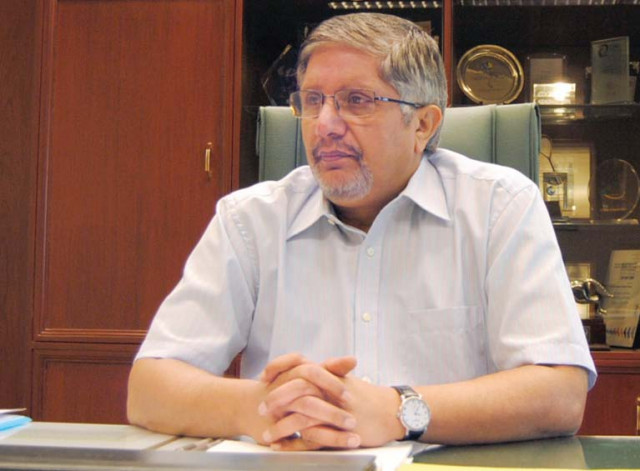‘Ability to refine crude oil could save billions’
When Irfan Qureshi took over as MD, PSO last year, the nation’s largest oil marketing company was in dire straits.

Since then the oil marketing giant has turned from incurring a loss of Rs6.7 billion in fiscal 2009 to reporting a Rs9.05 billion profit in fiscal 2010.
“Since the first day I have concentrated on bringing down costs,” contended Qureshi. “In the past year our operational losses have reduced by Rs1.4 billion and we have renegotiated rates on the non-oil products that we import,” he asserted.
These steps have helped improve the company’s margins and profitability.
Towards new horizons
Qureshi, an Institute of Business Administration graduate, asserted that he has a well-defined vision for the organisation: Taking PSO from being an oil marketing company to an integrated energy company.
He explained that billions of rupees in foreign exchange could be saved if the company were to gain the ability to refine crude oil. “We should have invested in refineries and storage facilities a long time back,” lamented Qureshi.
Since his appointment to the top post he has worked towards acquisition of a refinery. PSO is currently deliberating the purchase of Pakistan Refinery Limited, the modalities of which may be completed within the next three months.
The managing director has also taken a keen interest in revamping the organisation’s lubricant business as other oil marketing companies are enjoying significant returns from this segment. “Lubricants and similar products are deregulated,” pointed out Qureshi. “Unfortunately, our products in this category have not performed as well as our competitors up till now.”
However, PSO hopes to change all of this by re-launching its range of lubricants.
Although Qureshi did not disclose the exact strategy the company was going to follow, he hinted the launch would take place in October.
Shackles of debt and taxes
When questioned about the possibility of clearing billions of rupees in circular debt within the country’s energy sector, Qureshi did not mince words.
“The buck stops with Pepco,” he asserted. “The approval of higher tariffs means they have more receivables flowing in, which should put Pepco in a better position to release payments to independent power providers.”
In turn, the power providers can clear their dues with PSO.
Though sceptical about a quick fix, the MD believed that releases of partial amounts to cover outstanding payments could ease liquidity concerns.
PSO is the country’s largest company in terms of revenue and it is also the biggest taxpayer. Now the company faces an even higher tax bill because the federal government has increased turnover tax charged on total sales revenue from 0.5 per cent to one per cent.
All oil marketing companies, including PSO, are negotiating with the Federal Board of Revenue for a reduction in this tax as they argue that their profitability is at stake.
“If the margins of oil marketing companies are fixed by the government, then it should not tax gross revenues,” declared Qureshi.
Open to change
Above all, Qureshi prides himself for bringing changes to the work environment of a public sector entity. He cited that a zero tolerance policy against sexual harassment at the workplace has been implemented.
The company is also introducing a 360-degree appraisal system and a balance score card for effective career planning. “Internal skill development is crucial to meeting strategic goals of the company,” said Qureshi. “Having an open door policy where there was no culture of the MD being available has really helped build communication channels.”
Despite hailing from the private sector, Qureshi believes that PSO should remain a state-run organisation free from the influence of external parties.
He highlighted that the company has worked round the clock to maintain fuel supplies throughout the country in the wake of the floods while other companies had shut shop in most of the affected areas.
Qureshi has no doubt in his mind that PSO will become a trillion-rupee company by the end of the next fiscal year.
However, he confessed that the real goal is to regain PSO’s position as a Fortune 500 company and become the country’s integrated energy provider. “We have some excellent young people who can assume leadership positions in years to come and propel PSO to its vision,” concluded the man in charge of Pakistan’s oil marketing giant.
Published in The Express Tribune, August 29th, 2010.



















COMMENTS
Comments are moderated and generally will be posted if they are on-topic and not abusive.
For more information, please see our Comments FAQ